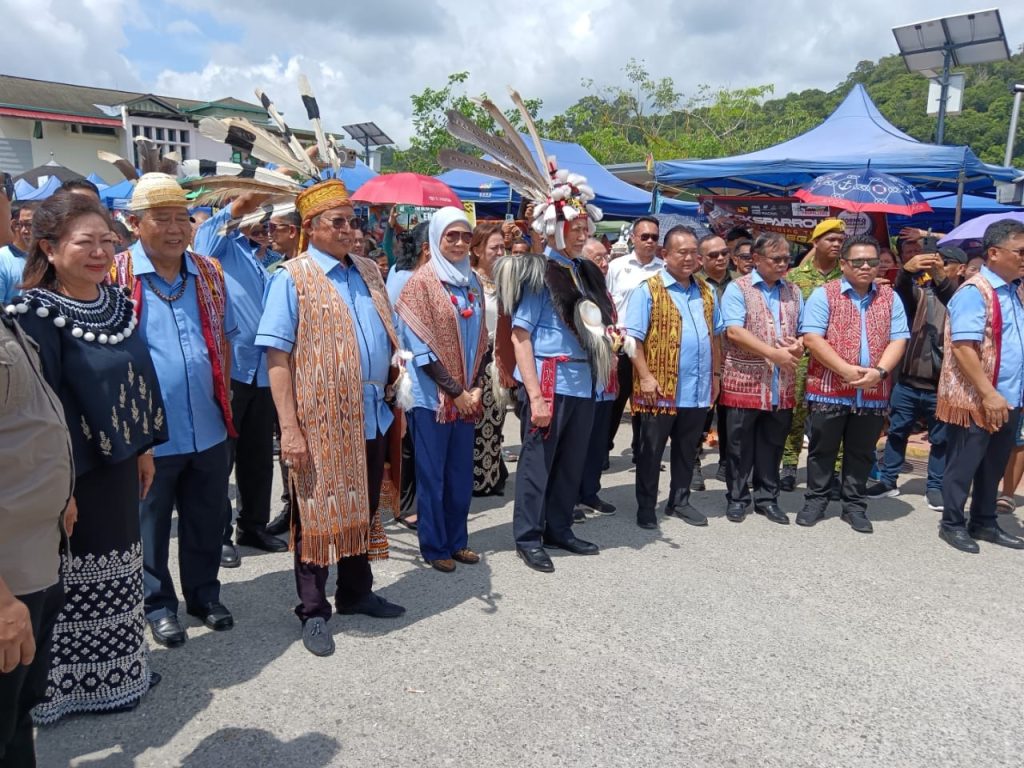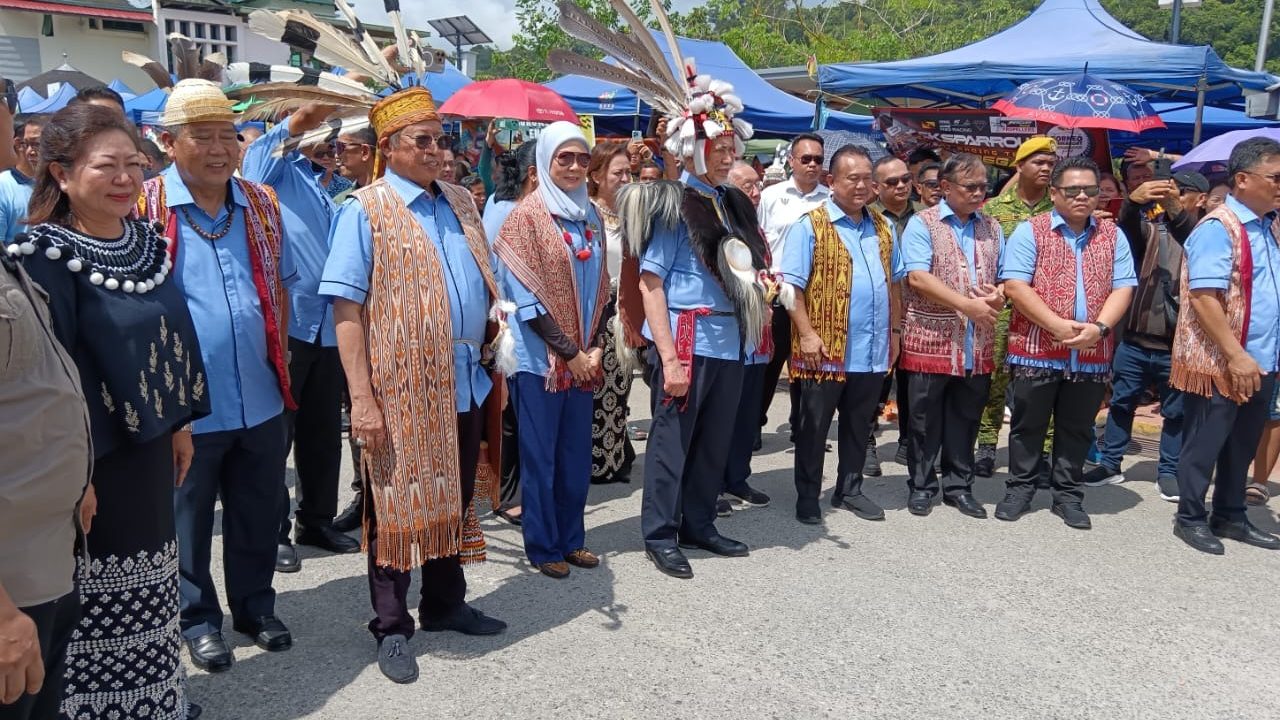Advertisements
KUCHING (Dec 27): Kapit, a town in central Sarawak, recently celebrated a significant milestone, marking the 100th anniversary of the historic peace-making ceremony held in 1924. This landmark event, which ended years of tribal warfare and division, was commemorated with a series of events from December 1 to 8, culminating in a grand celebration on December 8.
The peace ceremony in 1924 was a turning point for the region, bringing an end to decades of conflict among local tribes, including the Iban, Kayan, Kenyah, and Kajang communities. This event paved the way for unity and lasting peace in Sarawak. Distinguished guests at the centenary celebration included Yang di-Pertua Negeri Tun Pehin Sri Dr Wan Junaidi Tuanku Jaafar, Premier Datuk Patinggi Tan Sri Abang Johari Tun Openg, and Works Minister Datuk Seri Alexander Nanta Linggi, who attended the various events throughout the week.

According to the Tun Jugah Foundation, the period before the peace ceremony was marked by unrest, as conflicts arose over spiritual beliefs, social status, territorial disputes, and resources. Rivalries were not only present between different tribes but also within them, fueling much of the tension. Under the leadership of James Brooke starting in 1841, pacification tactics were introduced to quell uprisings and resistance, which included symbolic peace ceremonies and the killing of pigs as acts of reconciliation.
Advertisements
Over the years, the Brookes administration faced fierce opposition from local leaders fighting to preserve their traditions and autonomy. They responded with expeditions like the Katibas, Ulu Ai, and Great Kayan expeditions to restore order. The Kayan Expedition, one of the largest, involved over 15,000 fighters using 500 longboats, laying the groundwork for the eventual peace agreement.
The peace ceremony on November 16, 1924, officially ended the conflicts between the Iban, Kayan, Kenyah, and Kajang communities. Datuk Seri Alexander Nanta Linggi, chairman of the Tun Jugah Foundation, described this historic agreement as a beacon for future progress in the region.
Premier Abang Johari echoed this sentiment, emphasizing that the agreement was vital in fostering unity among Sarawak’s diverse communities. He pointed out that Kapit’s ongoing development, including plans for a modern square, symbolises the region’s continued growth rooted in the historic peace accord. “This agreement fosters friendship and cooperation among Sarawak’s people, enabling us to work together for the betterment of future generations,” he stated.
An International Seminar on the Celebration of Peace, held on December 6 and 7, explored the lasting impact of the 1924 peace agreement on communal relations, development, and shared history. State Deputy Minister for Utility and Telecommunication, Datuk Liwan Lagang, highlighted the need to uphold values of inclusivity, unity, and diversity, embodying the “Segulai Sejalai” spirit cherished by the Orang Ulu community.
As Kapit enters its second century, the legacy of the 1924 peace agreement continues to guide its journey. The anniversary celebration was a powerful reminder of the importance of peace, unity, and collaboration for the future of Sarawak. The Tun Jugah Foundation remains committed to ensuring these values are upheld and integrated into the region’s development for generations to come.


